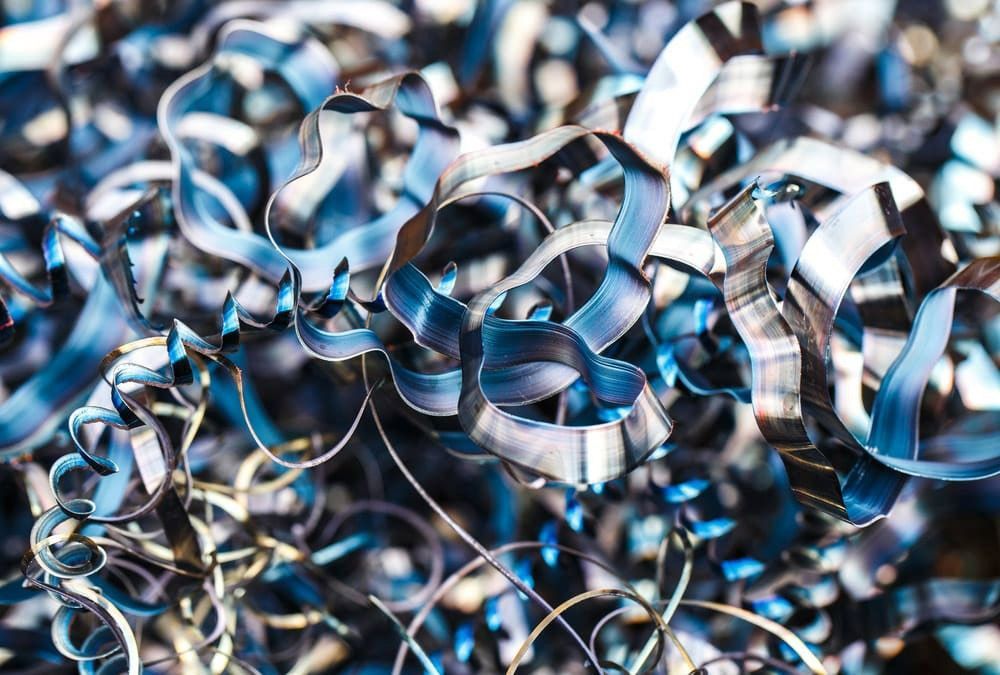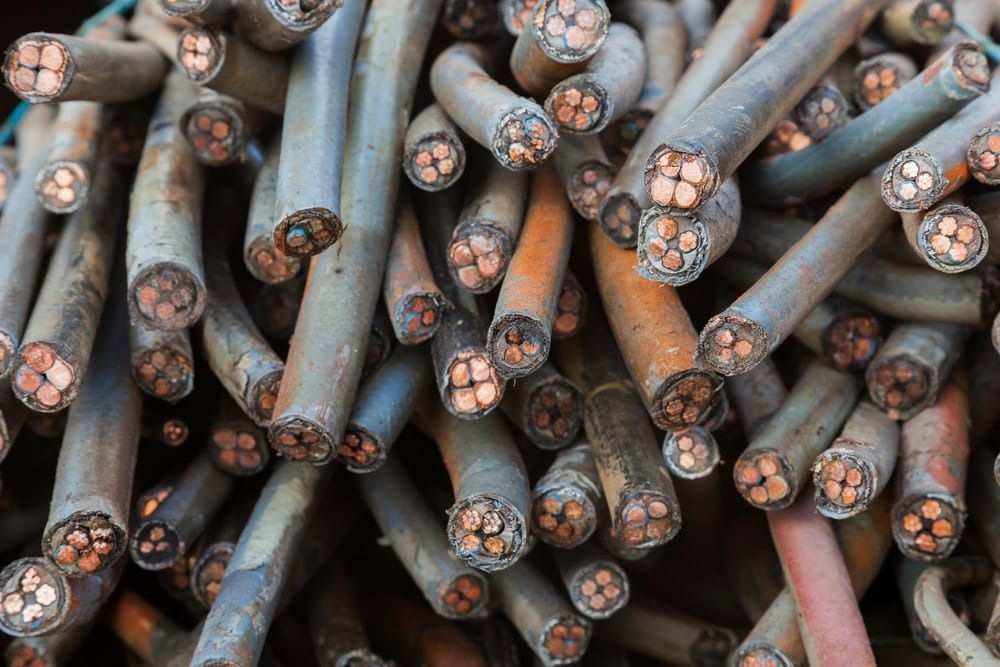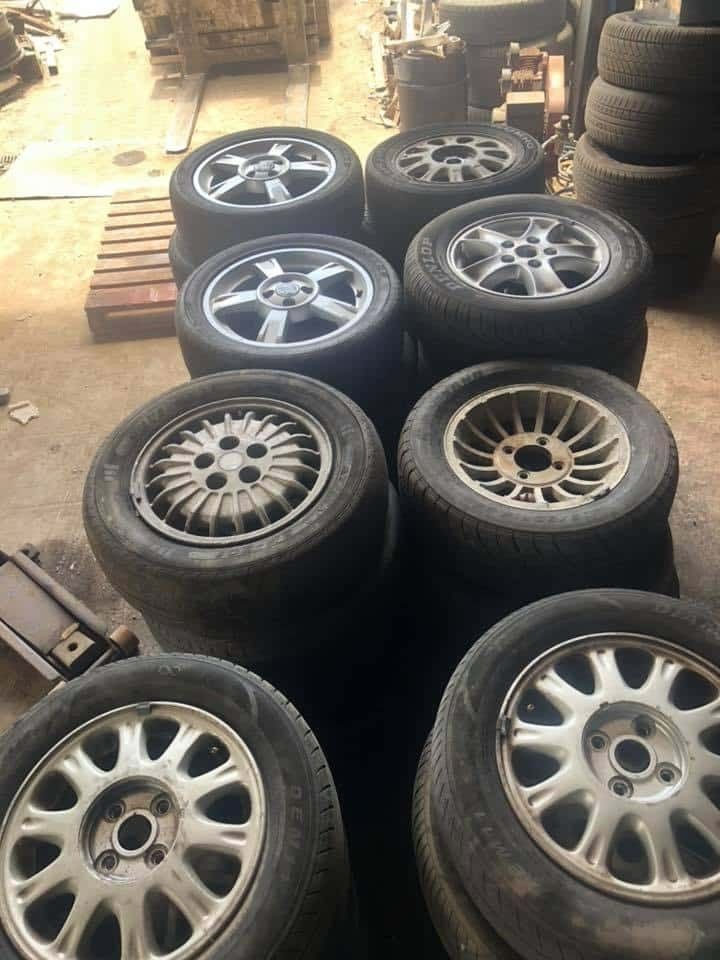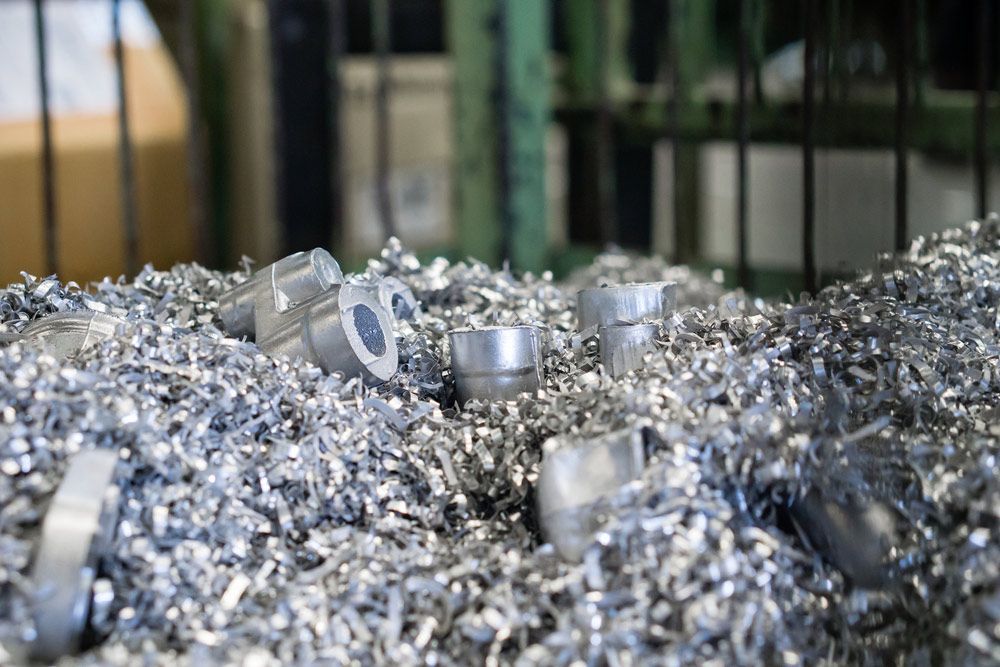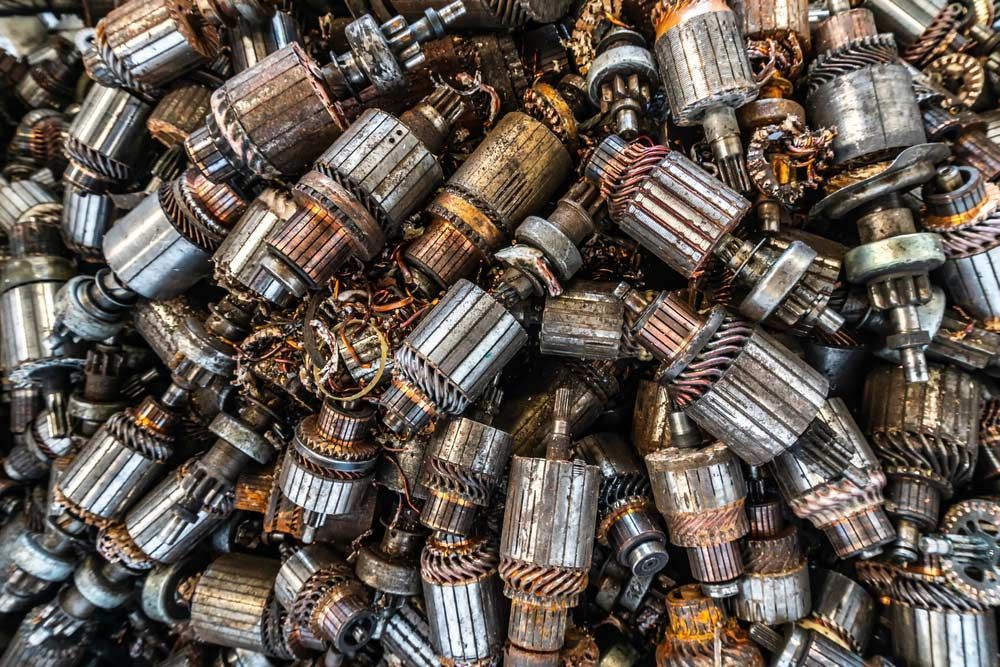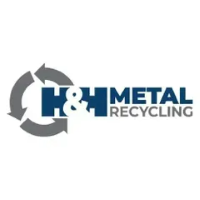Commercial Metal Recycling Sunshine Coast
- Residential & Commercial Services
- Environmentally Friendly Practices
- Covering a Wide Service Area
Contact Us
Thank you for contacting H & H Metal Recycling.
We will get back to you as soon as possible.
Oops, there was an error sending your message.
Please try again later.
Recycle Your Commercial Scraps
H&H Metal Recycling provides reliable and efficient commercial metal recycling on the Sunshine Coast, with a fleet of trucks ready to service construction sites, warehouses and industrial operations. We’re trusted by leading businesses and government organisations for large-scale pickups and ongoing scrap management. Our experienced team ensures that metal waste is collected safely and processed responsibly.
We act as an extension of your operations, helping to keep your site clear, compliant and running smoothly. With prompt service, fair pricing and a focus on minimising disruption, we make it easy to manage commercial and construction scrap without the hassle.
Our commercial metal recycling services are available throughout Maroochydore, Caloundra, Kawana Waters, Landsborough, Coolum, Noosa, Caboolture, Warana, Nambour and Cooroy, with options available across regional Queensland. Get in touch today to see how we can support your business with tailored scrap metal solutions.
What Items Can Be Recycled?
We can help any commercial organisation to recycle their items and prevent them from going to landfill. The types of metal we collect and recycle for you include:
- Copper
- Brass
- Steel, including stainless
- Aluminium
- Lead
Commercial items may include A/C units, copper wires, fridges, radiators, batteries and electric motors. We can also help you to dispose of excess construction materials, such as structural steel and beams. Or perhaps you have vehicles that are no longer in use—we can take these too, even trucks and large machinery. We can also take car parts, such as catalytic converters. To find out more, call (07) 5228 0481.
Our Construction & Commercial Recycling Process — How It Works
Do you want to know what happens when you sell your waste appliances to H&H Metal Recycling? Here is the basic commercial scrap metal process, from pickup to resale.
Step 1: If you are located on the Sunshine Coast and have some defunct metal, contact us through the online form and tell us what you’d like to scrap. We will give you a quote for your items and arrange a day to pick them up, depending on if you are satisfied with the amount.
Step 2: On the day of the pickup, make sure to have all of your metal ready to load onto our truck. We will arrive at a mutually decided time and take it off your hands.
Step 3: After the collection process is completed, we will take your metal to a scrapyard, where it will be sorted into types alongside the rest of our recent collections by using magnetic sensors to determine whether they are ferrous or non-ferrous, then analysing equipment to learn of their specific components.
Step 4: We then have the metals crushed and compacted, ready for a shredding process. This makes it easier for us to melt them down. This might be done at a scrap yard or transferred to another specialist plant if it is beyond our capabilities.
Step 5: After the metal is completely melted down, the substance undergoes a purifying process through electrolysis to remove any contaminants.
Step 6: The metal, finally in its purest form once again, is solidified. This is usually in the shape of bars, which can then be sold back to distributors for use in new products.
By selling your useless junk with us, you could contribute to a wider trade that values a substance’s longevity, keeping our environment greener and healthier. Just think—the aluminium from your car could now be in your new toaster, all thanks to your investment in the scrap industry!
We Offer Competitive Rates
For businesses looking to dispose of their scrap metal, the choice of a recycling partner is important. Beyond the environmental implications, the financial aspect plays a significant role. At H&H Metal Recycling, our team is skilled in assessing, processing and recycling metals, ensuring businesses receive fair prices for their scrap.
Providing Outstanding Customer Service
At H&H Metal Recycling, we understand businesses have tight schedules and specific needs. From providing quotes and timely pickups to transparent transactions, our team is committed to delivering exceptional service. From the first point of contact to the final transaction, we maintain clear communication channels, ensuring our clients are informed every step of the way.
The Impact of Commercial Metal Recycling on the Environment
Commercial metal recycling plays an important role in environmental protection:
- Conservation of Natural Resources: By reusing the metals we already have, we’re reducing the strain on our natural reserves, ensuring they last for future generations.
- Reduction in Energy Consumption: Producing products from recycled metals typically requires significantly less energy compared to producing the same products from raw materials.
- Reduced Greenhouse Gas Emissions: The energy savings from using recycled metals help reduce greenhouse gas emissions. By cutting back on these emissions, we’re not only combating climate change but also ensuring cleaner air.
Get in touch today to find out more.
Why Choose H&H Metal Recycling?
When it comes to commercial metal recycling, you want a partner that brings value, expertise and reliability. Here are compelling reasons why H&H Metal Recycling should be your preferred choice:
- Environmental Advocacy: By choosing us, you’re partnering with a team dedicated to reducing waste and promoting sustainable practices. Recycling is more than our job; it’s our contribution to safeguarding our planet for future generations.
- A Legacy of Trust: Our ethos is built on honesty, transparency and a commitment to achieving the best outcomes for everyone involved.
- Family-Owned Business: As a family-owned and operated business on the Sunshine Coast, our ties to the community run deep. We offer the personalised touch of a local enterprise paired with the expertise and standards of an industry leader.
- Extensive Expertise: With over 40 years of combined experience, we’ve honed our skills and industry knowledge to provide you with high-quality services, ensuring your scrap metal is managed responsibly and efficiently.
- Competitive Pricing: We ensure that the prices we offer are not only competitive but also a fair reflection of the value of the scrap metal you bring to us.
If you have any questions about the services we offer, reach out to us today.
Frequently Asked Questions
Do you take mercury?
While mercury can be reused safely and contained, it is considered a poison so cannot be mixed in with other metals at a scrapyard. If scrap metal comes into contact with this substance, it is treated as a hazard to human health and must be detected early on to avoid any risks. It is best to find somewhere that specialises in mercury disposal or call us today for more direction on what to do.
Why is Commercial Metal Recycling Important?
Commercial metal recycling ensures valuable resources are not needlessly discarded but are repurposed and reintegrated into the production cycle. This approach not only mitigates the strain on our waste management systems but also promotes resource conservation.
Furthermore, the environmental footprint of recycling metals is less than that of traditional metal extraction and production. It conserves significant amounts of energy and minimises the adverse impacts of mining on our planet’s natural landscapes and biodiversity.
How can businesses ensure responsible metal recycling?
The task of ensuring responsible metal recycling is not limited to the recycling facilities; businesses play an important role in setting the stage for sustainable practices. One of the initial steps a business can take is the meticulous segregation of waste. Properly sorting metals not only enhances the quality of the recyclables but also ensures a smoother and more efficient recycling process.
Collaborating with reputable recycling partners is another integral aspect. A trusted commercial metal recycling company will have the necessary certifications and credentials, adhering to established industry standards and best practices.
What's the difference between ferrous and non-ferrous metals in recycling?
Ferrous metals have iron as their primary component. This gives them magnetic properties and makes them especially prevalent in our daily lives in the form of steel. In the recycling process, their magnetic properties make them easily separable from mixed waste using powerful magnets, which is the first step in the sorting phase.
On the other hand, non-ferrous metals, which include metals like aluminium, copper and brass, lack a significant iron component and are thus not magnetic. When recycling these metals, different methods are employed to sort and process them.
How does metal extraction impact the environment?
Metals start their journey with extraction from the earth through mining. This phase is energy-intensive, often disruptive to local ecosystems and has considerable carbon footprints. Once extracted and refined, metals find their way into a range of products, from the construction industry to electronics. Over time, these products reach the end of their usability.
Earlier, many discarded metal items ended up in landfills, leading to the waste of valuable resources. However, with increased awareness and advancements in recycling technology, more metals are now being diverted to recycling facilities. Once recycled, these metals re-enter the production cycle, thus reducing the need for fresh extraction. This system ensures that we maximise the utility of metal while minimising waste and environmental impact.



